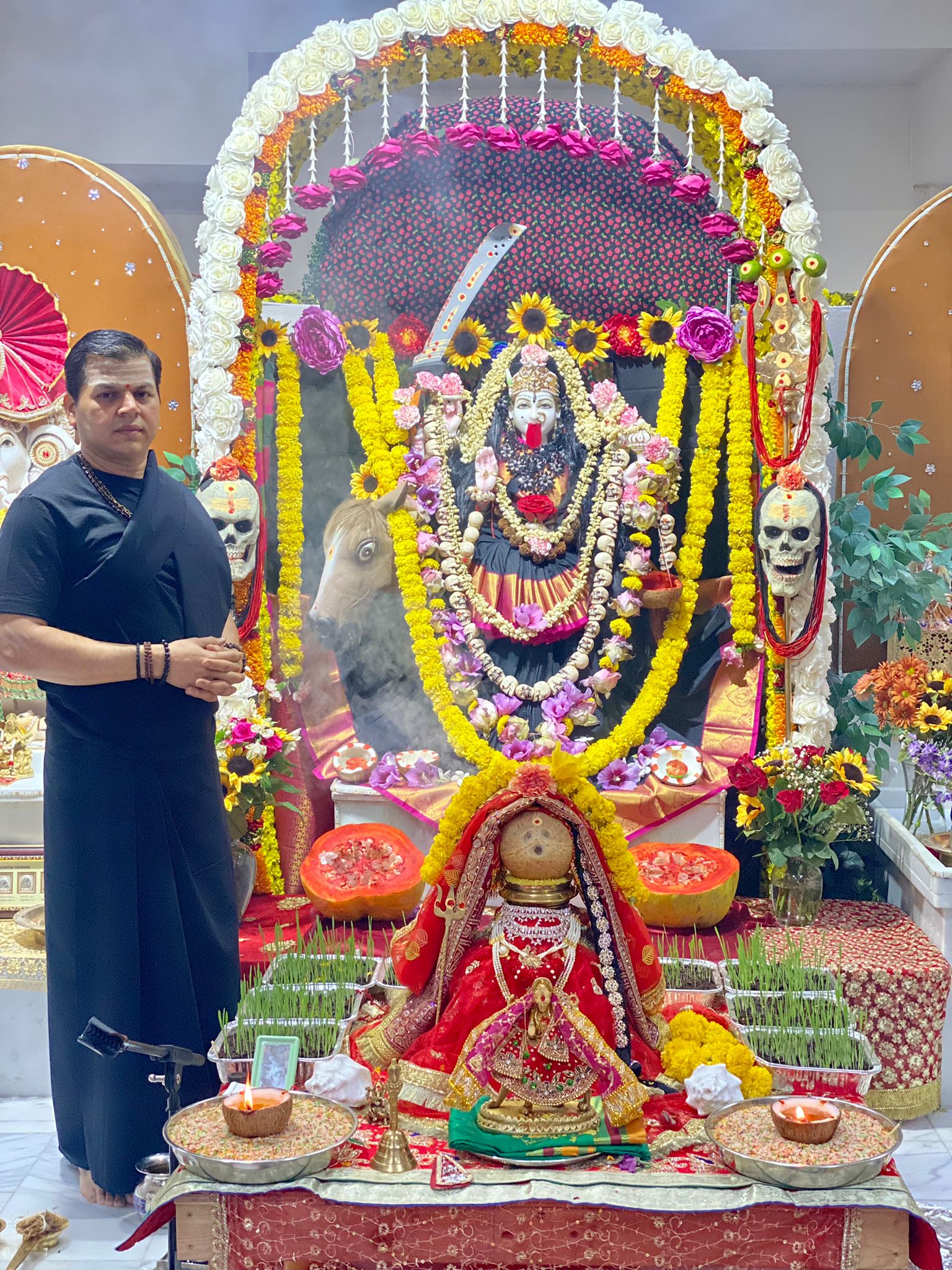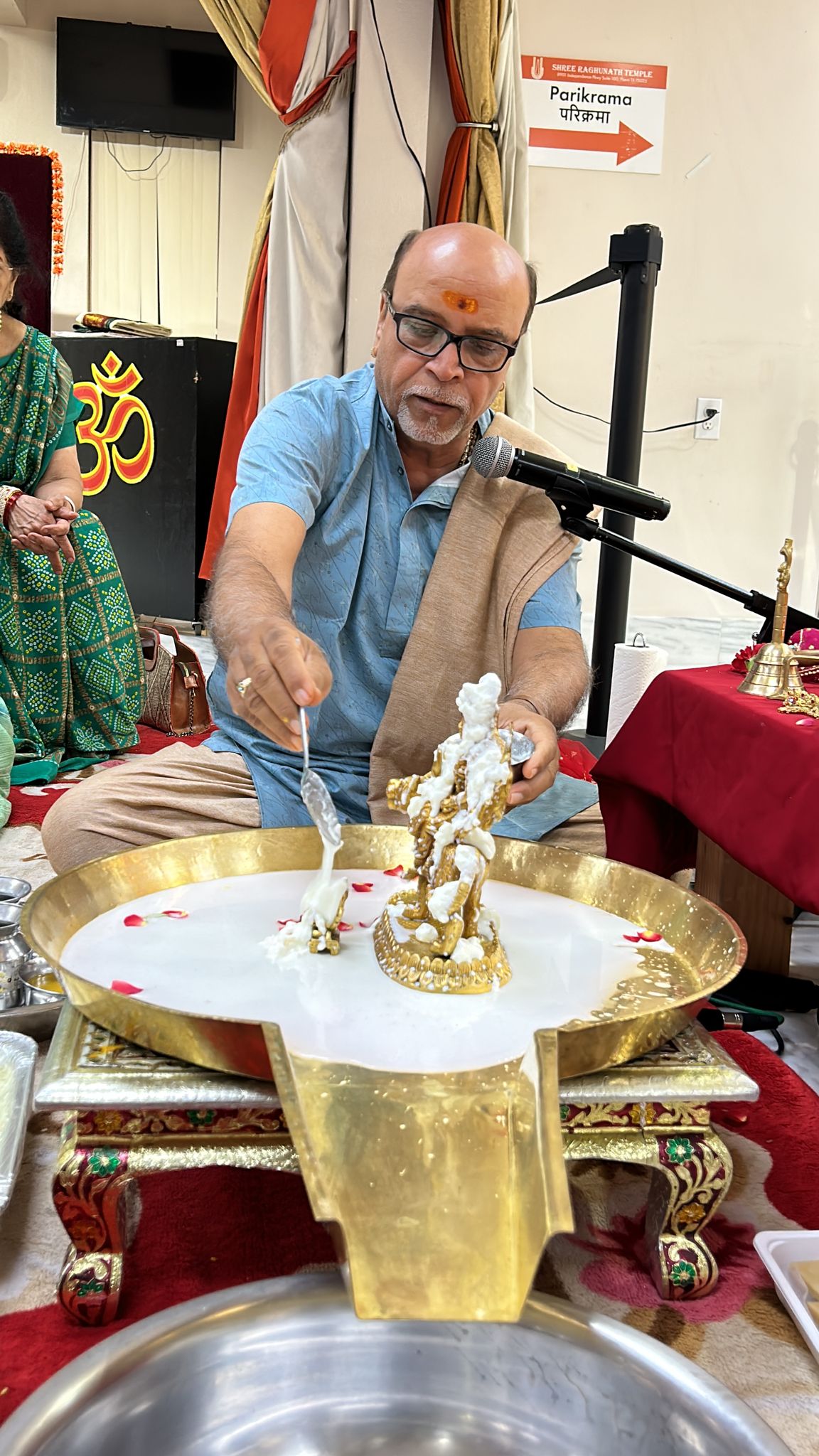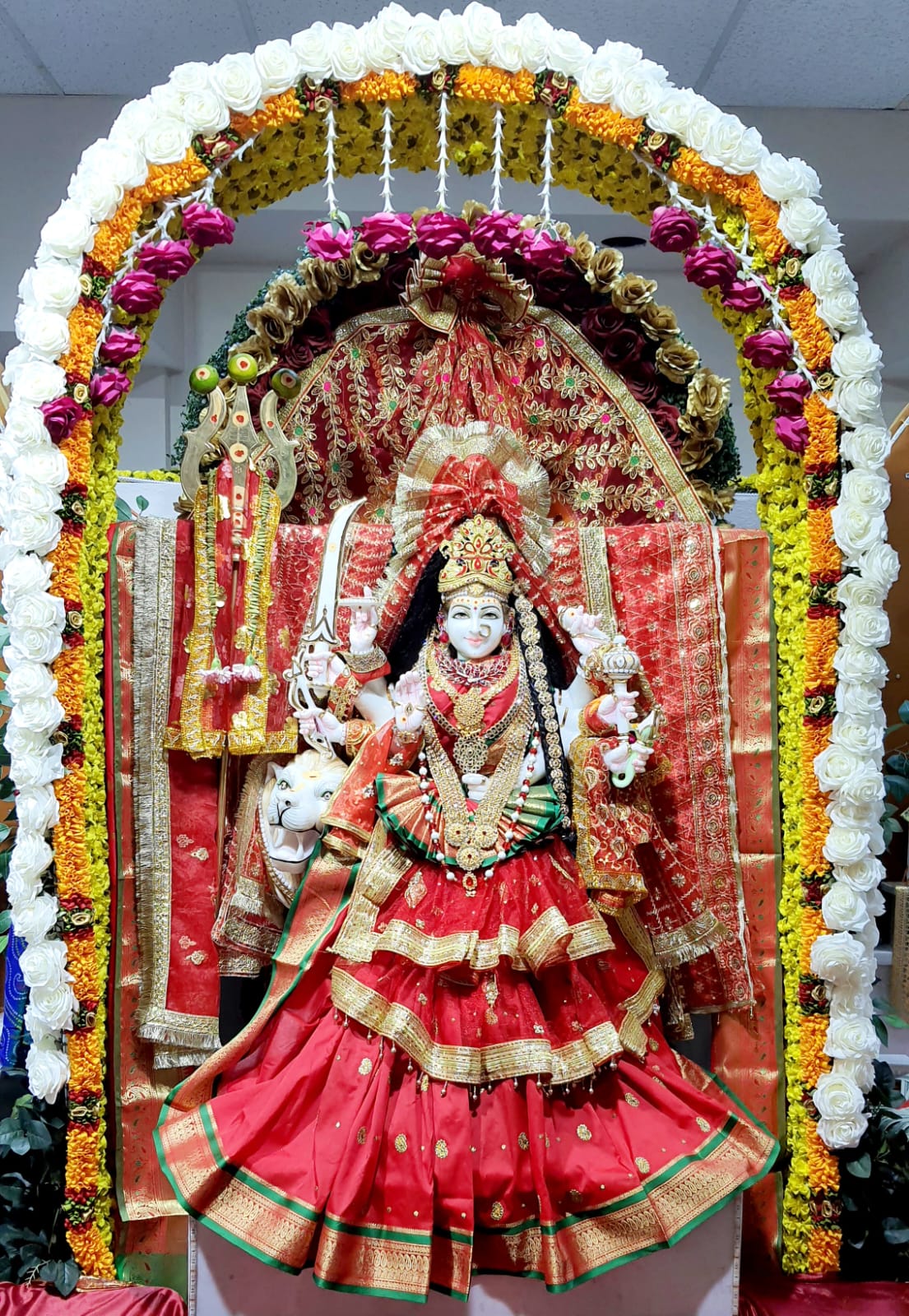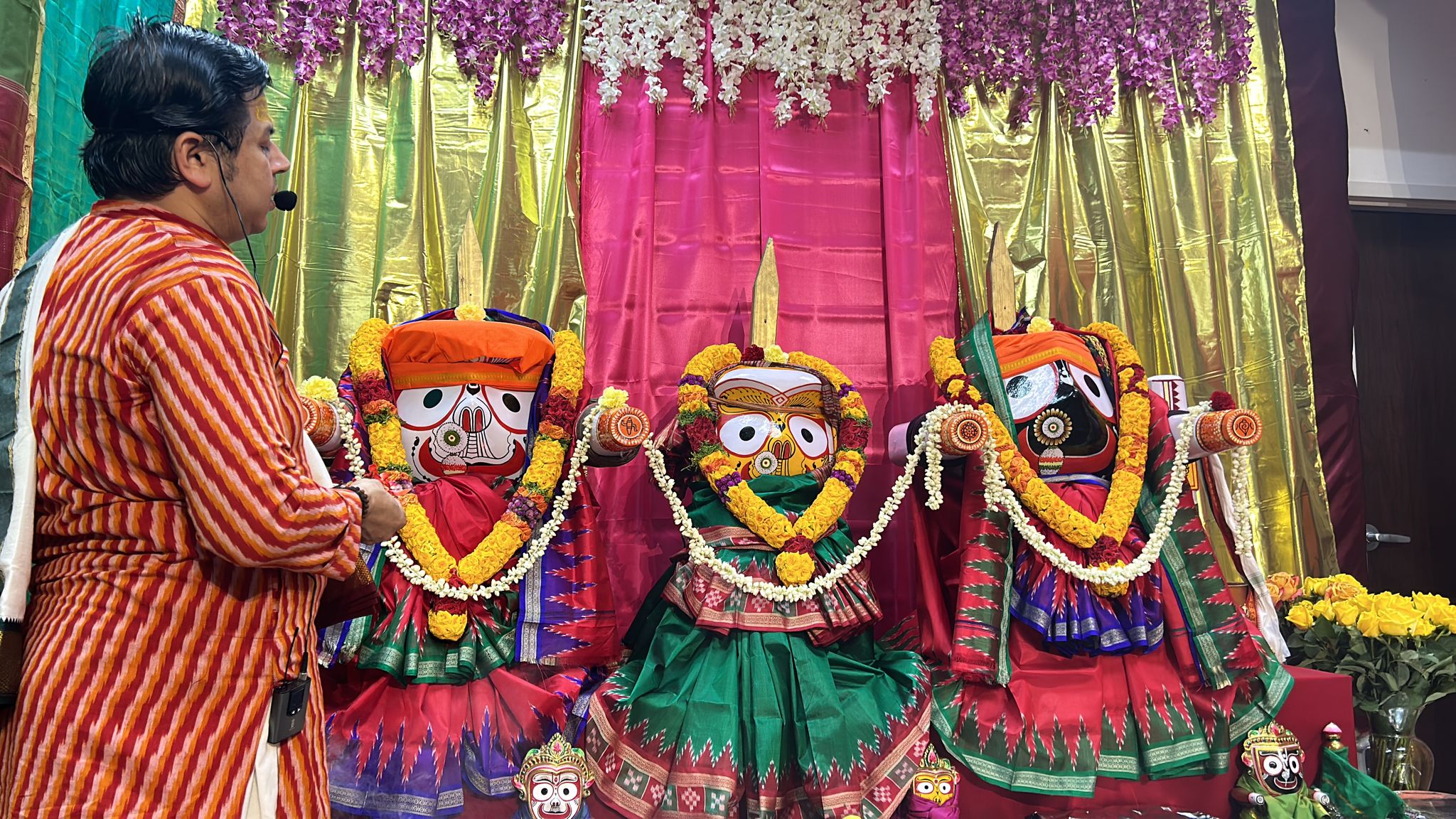Jun 24 @ 6:30 pm – 7:30 pm
6:30 pm
Jai Shree Ram, The Hanuman Chalisa (literally Forty chaupais on Hanuman) is a Hindu devotional hymn (stotra) addressed to Hanuman. It is traditionally believed to have been authored by 16th-century poet Tulsidas in the Awadhi language, and is his best known text apart from the Ramcharitmanas. The word “chālīsā” is derived from “chālīs”, which means[...]
Jul 1 @ 6:30 pm – 7:30 pm
6:30 pm
Jai Shree Ram, The Hanuman Chalisa (literally Forty chaupais on Hanuman) is a Hindu devotional hymn (stotra) addressed to Hanuman. It is traditionally believed to have been authored by 16th-century poet Tulsidas in the Awadhi language, and is his best known text apart from the Ramcharitmanas. The word “chālīsā” is derived from “chālīs”, which means[...]
Jul 8 @ 6:30 pm – 7:30 pm
6:30 pm
Jai Shree Ram, The Hanuman Chalisa (literally Forty chaupais on Hanuman) is a Hindu devotional hymn (stotra) addressed to Hanuman. It is traditionally believed to have been authored by 16th-century poet Tulsidas in the Awadhi language, and is his best known text apart from the Ramcharitmanas. The word “chālīsā” is derived from “chālīs”, which means[...]
Jul 15 @ 6:30 pm – 7:30 pm
6:30 pm
Jai Shree Ram, The Hanuman Chalisa (literally Forty chaupais on Hanuman) is a Hindu devotional hymn (stotra) addressed to Hanuman. It is traditionally believed to have been authored by 16th-century poet Tulsidas in the Awadhi language, and is his best known text apart from the Ramcharitmanas. The word “chālīsā” is derived from “chālīs”, which means[...]
Jul 22 @ 6:30 pm – 7:30 pm
6:30 pm
Jai Shree Ram, The Hanuman Chalisa (literally Forty chaupais on Hanuman) is a Hindu devotional hymn (stotra) addressed to Hanuman. It is traditionally believed to have been authored by 16th-century poet Tulsidas in the Awadhi language, and is his best known text apart from the Ramcharitmanas. The word “chālīsā” is derived from “chālīs”, which means[...]
Jul 29 @ 6:30 pm – 7:30 pm
6:30 pm
Jai Shree Ram, The Hanuman Chalisa (literally Forty chaupais on Hanuman) is a Hindu devotional hymn (stotra) addressed to Hanuman. It is traditionally believed to have been authored by 16th-century poet Tulsidas in the Awadhi language, and is his best known text apart from the Ramcharitmanas. The word “chālīsā” is derived from “chālīs”, which means[...]
Aug 5 @ 6:30 pm – 7:30 pm
6:30 pm
Jai Shree Ram, The Hanuman Chalisa (literally Forty chaupais on Hanuman) is a Hindu devotional hymn (stotra) addressed to Hanuman. It is traditionally believed to have been authored by 16th-century poet Tulsidas in the Awadhi language, and is his best known text apart from the Ramcharitmanas. The word “chālīsā” is derived from “chālīs”, which means[...]
Aug 12 @ 6:30 pm – 7:30 pm
6:30 pm
Jai Shree Ram, The Hanuman Chalisa (literally Forty chaupais on Hanuman) is a Hindu devotional hymn (stotra) addressed to Hanuman. It is traditionally believed to have been authored by 16th-century poet Tulsidas in the Awadhi language, and is his best known text apart from the Ramcharitmanas. The word “chālīsā” is derived from “chālīs”, which means[...]
Aug 19 @ 6:30 pm – 7:30 pm
6:30 pm
Jai Shree Ram, The Hanuman Chalisa (literally Forty chaupais on Hanuman) is a Hindu devotional hymn (stotra) addressed to Hanuman. It is traditionally believed to have been authored by 16th-century poet Tulsidas in the Awadhi language, and is his best known text apart from the Ramcharitmanas. The word “chālīsā” is derived from “chālīs”, which means[...]
Aug 26 @ 6:30 pm – 7:30 pm
6:30 pm
Jai Shree Ram, The Hanuman Chalisa (literally Forty chaupais on Hanuman) is a Hindu devotional hymn (stotra) addressed to Hanuman. It is traditionally believed to have been authored by 16th-century poet Tulsidas in the Awadhi language, and is his best known text apart from the Ramcharitmanas. The word “chālīsā” is derived from “chālīs”, which means[...]
Sep 2 @ 6:30 pm – 7:30 pm
6:30 pm
Jai Shree Ram, The Hanuman Chalisa (literally Forty chaupais on Hanuman) is a Hindu devotional hymn (stotra) addressed to Hanuman. It is traditionally believed to have been authored by 16th-century poet Tulsidas in the Awadhi language, and is his best known text apart from the Ramcharitmanas. The word “chālīsā” is derived from “chālīs”, which means[...]
Subscribe to filtered calendar






































































































